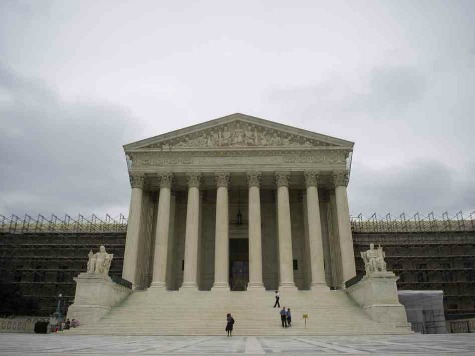
On Feb. 19, the Supreme Court reinstated a case involving an international fight over a child between an American serviceman and his ex-wife.
Jeffrey Lee Chafin was in Germany while serving in the U.S. Army. He married a British citizen, Lynne Hales Chafin, and they had a daughter. She took the daughter to Scotland when he was deployed to Afghanistan.
When he was later transferred to Alabama, his wife and daughter moved there to live together as a family. He eventually filed for divorce after alleging the mother committed acts of domestic violence. Consequently, she was deported.
At that point, the ex-wife filed suit in federal court in Alabama. The U.S. signed onto a treaty–which Congress implemented through additional legislation–requiring the “prompt return” of a child wrongfully kept in another country. The judge accepted the mother’s argument that the daughter’s actual residence was in Scotland and ordered the child returned to the British mother.
The father appealed and asked the district court to stay its order until the appeal was decided. The lower court denied the request, and the child was immediately sent to Scotland.
Shortly thereafter, the U.S. Court of Appeals for the Eleventh Circuit in Atlanta dismissed the case as moot, saying in a Catch-22 opinion that now that the child was no longer in the U.S., American courts had no power to make a difference, so they lacked jurisdiction to allow the case to go forward.
In Chafin v. Chafin, the Supreme Court reversed the lower court’s decision. In a unanimous opinion, Chief Justice John Roberts quoted a 2012 case where the Court reaffirmed that a case “becomes moot only when it is impossible for a court to grant any effectual relief whatever to the prevailing party.” If the parties have a concrete interest in the case, “no matter how small,” then courts retain jurisdiction to render a judgment.
In this case, there are plenty of issues still on the table. Among them, the trial court assessed $94,000 in fees, costs, and travel expenses to the father, and part of his appeal is that he should not be liable for the costs. Roberts noted that kind of price tag looks like something a party would have an interest in getting reversed on appeal.
That issue is becoming increasingly significant in an era of international cases, especially when they intersect parental rights. This child is an American citizen whose father served his country.
So the Supreme Court has ordered the case reinstated for further proceedings. It’s not clear at this point which party is likely to prevail under these laws, but at least both sides will get their day in court.
Breitbart News legal columnist Ken Klukowski is a fellow with the American Civil Rights Union and co-author of Resurgent: How Constitutional Conservatism Can Save America.

COMMENTS
Please let us know if you're having issues with commenting.